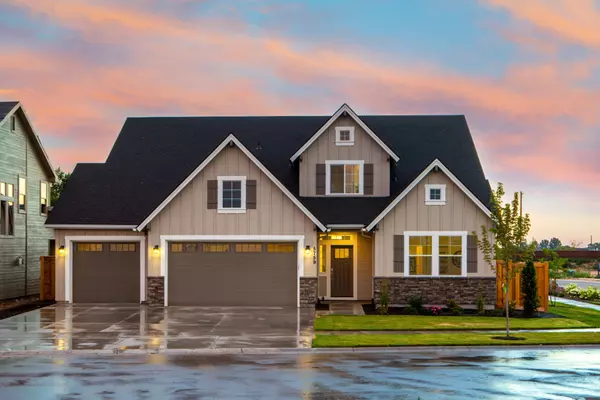
How to manage time when visiting houses
When searching for a new home, managing your time effectively is crucial. With so many houses to visit and decisions to make, it's important to plan ahead to ensure that you make the most of your time and find the perfect home. In this blog post, we will discuss some tips for managing your time when visiting houses, focusing on the areas of concern for buyers, mortgages, and neighborhoods. Before you start visiting homes, it's essential to research and narrow down your options. By doing this, you can save yourself a lot of time and energy. Make a list of your priorities and think about what's most important to you: the location or the house itself. If you prioritize location, focus on neighborhoods that meet your criteria. On the other hand, if the house itself is more important to you, then consider properties that meet your size, style, and design preferences. When it comes to managing your time effectively, it's important to plan your visits strategically. Create a schedule that allows you to visit multiple houses in one day, taking into account the location and proximity of each property. Group houses that are in the same neighborhood or area together, as this will save you traveling time. Additionally, keep in mind that visiting too many houses in one day can be overwhelming and make it difficult to remember the details of each property. Aim for a manageable number of visits per day, allowing yourself enough time to explore each house thoroughly. As you visit each property, pay attention to the key factors that matter to you as a buyer. Look beyond the aesthetics and consider the functionality and condition of the house. Take note of the size, layout, and number of bedrooms and bathrooms, as well as any desired features such as a backyard or a garage. This will help you quickly eliminate properties that don't meet your criteria and narrow down your options. Another important aspect to consider is the mortgage process. If you require financing, it's essential to have a pre-approval letter from a lender before visiting houses. This will not only give you a clear understanding of your budget but also show sellers that you're a serious buyer. Having a pre-approval in hand will save you time by allowing you to focus on properties within your price range. When it comes to the neighborhood, take the time to explore the surroundings and assess if it meets your needs and preferences. Consider factors such as proximity to schools, parks, shopping centers, and your workplace. Research crime rates and access to public transportation. Being well-informed about the neighborhood will help you make an informed decision and save you from wasting time on houses that are not in the right location for you. In conclusion, managing your time effectively when visiting houses is crucial to finding your dream home. By conducting thorough research before viewing properties, focusing on your priorities, and organizing your visits strategically, you can make the most of your time and find the perfect home. Remember, it's not just about the house itself, but also the location and neighborhood that matter. Happy house hunting!

Dear Sellers
Selling your home is an involved process that affects your family and your future. Before you begin this process, you’ll want to ensure that you have the most up-to-date information. When should you sell? How do you get the best price? What kinds of renovations should be made prior to the sale? Selling your home is all about knowing the local housing market and pricing your home correctly. Pricing your home is a very individual process and we can help you determine market trends and match your home to comparable properties. As seasoned agents we can help you make the right choices when it comes to selling your home, too. Home prices that are inflated can result in more days on the market and less buyer response, so it’s important that your home be priced correctly. Buyers get excited about new listings, so realistic pricing is key to getting people to tour and make offers on your home, particularly when you first list your home. What Will It Take To Sell Your Home? Once we’ve set the price, we then showcase or “stage” your home to entice buyers. Qualified buyers will be impressed by the simple measures we take to dress up your home and feel impressed to make you an offer on your home. If your home’s location or design is unique, you’ll find that buyers will be intrigued as we showcase these features. Our marketing plan guarantees maximum exposure – through pricing, staging, agent accessibility, and visibility, both on and offline. Our goal is the successful sale of your home and we will do our best to achieve that and find you the right buyer.

Avoid the Most Common Buying Errors
Embarking on the journey of finding a new home can be a thrilling yet emotional roller coaster. However, the excitement often leads some buyers to overlook crucial aspects, turning their home purchase into a costly affair. Common errors fall into three categories: Paying too much Losing a dream home to another buyer Buying the wrong home To avoid these pitfalls, having a systematic plan in place is crucial. Consider the following tips to make the most of your home purchase: 1. Shopping without pre-approval Obtain financing pre-approval before home shopping. This provides you with added negotiation power, as sellers are more inclined to entertain offers from serious, pre-approved buyers. 2. Bidding without sufficient information Research market prices and comparable homes before making an offer. A professional realtor can offer an unbiased opinion based on market conditions, the home's condition, and the neighborhood, ensuring your offer aligns with the property's actual value. 3. Buying a mis-matched home Clearly identify your needs and wants in a home. Use your needs list as a guideline for every property you view to prevent making a hasty decision that doesn't align with your long-term goals. 4. Unclear title Ensure the property is free of encumbrances, including liens, deed restrictions, easements, encroachments, and licenses, before signing any documents. 5. Unexpected repairs Invest in a professional home inspection (usually costing $400-$600) to uncover potential repair costs. Make the final contract contingent on a favorable inspection report to safeguard against unforeseen expenses.
Categories
- All Blogs (56)
- Advocate (4)
- Appraisals (2)
- Avoiding Probate (1)
- Brokerage (4)
- Buying (27)
- Closing Insurance (1)
- Commercial (2)
- Decor (1)
- Divorce (2)
- Divorce Decree (1)
- Due Diligence (1)
- Embracing the Downsizing Journey (3)
- Enhancing Appeal through Upgrades and Staging (1)
- Equity (1)
- Estate Planning (2)
- Exploring Retirement Living Options (1)
- FHA (1)
- Friendship (1)
- Georgia, USA (9)
- Growing (2)
- Hidden Protection (3)
- Highlighting Unique Features (2)
- Holiday Events (1)
- Home Inspection (2)
- Home Maintenance (1)
- Homeowner Protection (8)
- Homeownership (20)
- Insurance (2)
- Land Trust (1)
- Lease Negotiation (2)
- Lender's Title Insurance (1)
- Lending (5)
- Licensed and Insured (1)
- Market (11)
- Marriage (1)
- Moving (8)
- NAR Settlement (2)
- New Home Journey (10)
- Owner's Title Insurance (1)
- Packing (2)
- Professional Advice (8)
- Property Damage (1)
- Property Taxes (1)
- Quitclaim Deed (1)
- Real Estate (19)
- Real Estate Closing Attorney (3)
- Relocation (11)
- Research and Review (1)
- Retirement Living (1)
- Sales and Acquisitions (1)
- Selling (12)
- Senior Home Solutions (1)
- Senior Housing (1)
- Seniors (2)
- Smart Pricing and Incentives (1)
- Summer (3)
- Title Search (1)
- Transfer Ownership Rights (1)
Recent Posts










